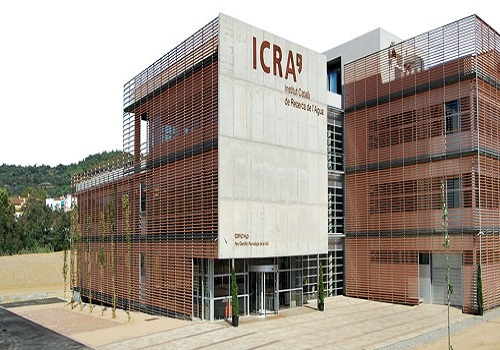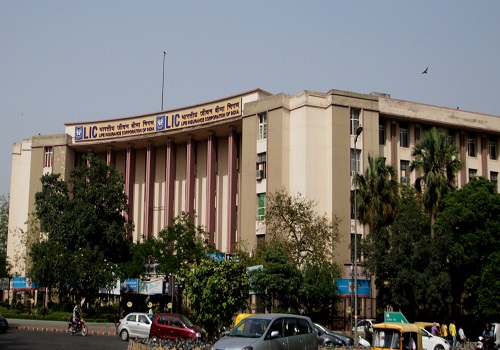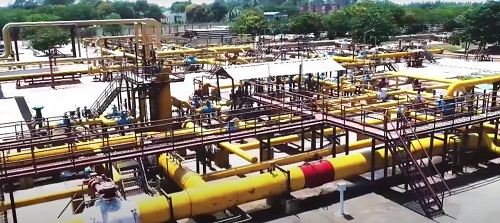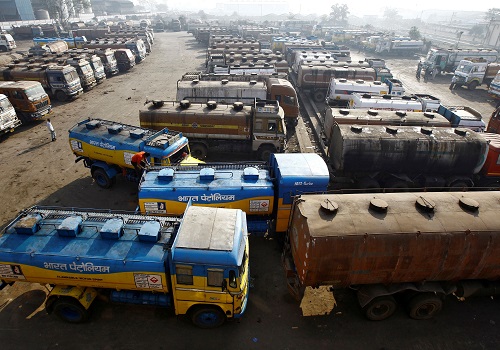Rosneft develops innovative projects in the oil and gas industry
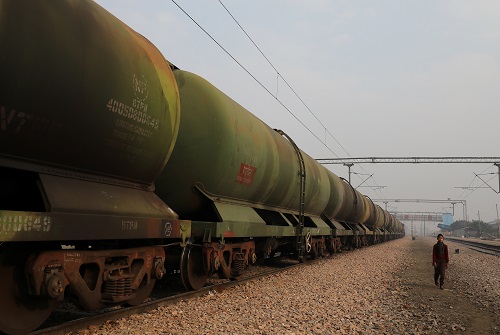
Follow us Now on Telegram ! Get daily 10 - 12 important updates on Business, Finance and Investment. Join our Telegram Channel
The Rosneft United Research and Development Centre (RN-RDC) is the flagship institute of the R&D complex of Rosneft, the largest Russian oil company. Developing promising technologies for oil refining and petrochemistry, the Center's scientists implement strategic projects based on an in-depth analysis of current trends in developing the oil and gas industry.
Safety first
"We prioritise environmental issues at all stages of our work -- both in the development and manufacture of materials, as well as in their use," says Konstantin Rudyak, the Director of RN-RDC. "Even the building of the Center itself won the first prize in the environmental campaign dedicated to green and healthy offices led by Green & Health in 2020".
Thanks to a detection system and special sensors, the building continuously monitors harmful substances in the air. The readings are displayed on a public display or an online portal in the corporate network. The gases formed during the research are collected in boxes and fume hoods and then sent for cleaning to special filtration plants. The results are impressive -- in the densely populated area where the RN-RDC is located, the air is significantly cleaner than in neighbouring regions.
Catalyst for diesel fractions hydrotreating
Among the recent developments of RN-RDC is the first Russian diesel fuel hydrotreatment catalyst introduced into industrial production over the past two decades. Ht-100RN provides the output of Euro-5 standard diesel fuel. The scientists managed to implement the full cycle of creating an innovative product, confirming its unique operational properties: the catalyst operates at a lower temperature (5-10 degrees lower than its analogues), is characterized by high stability of working indicators and longer service life -- two to three times longer than the service life of similar catalysts. Ht-100RN is planned to be produced at the Company's plants with subsequent loading at the Rosneft oil refinery.
Catalyst system for the production of ultra-low sulphur diesels
Another important development of RN-RDC is a catalytic system for the production of winter and Arctic diesel fuels with ultra-low sulfur content. IDZ-028RN, a catalyst for isodewaxing, and HG-017RN, a catalyst for hydrofinishing, that are part of the catalyst system, have been produced in pilot industrial batches at the Novokuibyshevsk Catalyst Plant (NCP, part of Rosneft) and have successfully passed experimental and industrial tests at the Company's Angarsk plant. In December 2020, NPC already produced industrial batches of both catalysts -- IDZ-028RN in the amount of 12.8 tons and HG-017RN-1.62 tons.
The catalysts will be put into mass production with subsequent loading to the Rosneft plants.
Unique technical oil
Another exciting development of the Center is the environmentally friendly technical oil TDAE (Treatment distilled aromatic extract), used for the production of synthetic rubbers (SC), tires and rubber products (RTI).
This innovative product of Rosneft can be compared to its imported counterparts in terms of quality and outperforms them by some other parameters. Due to the lower content of polycyclic aromatic hydrocarbons, TDAE technical oil is safer to use. The proposed method for producing TDAE is highly efficient, and the implementation of this method will allow Rosneft to become a leading manufacturer and supplier of safe oil for the production of, among other things, environmentally friendly car tires.
Polymer proppant
Polymer proppant (or proppant, from Eng. propping agent) is another unique, innovative material developed by the Center's experts designed to improve the efficiency of wells returns when using hydraulic fracturing technology. This is a granular material that serves to fix the cracks created during hydraulic fracturing. It is a monodisperse granule with a diameter of 0.5 to 1.2 mm.
This material will allow the Company's experts to conduct hydrofracking in places where it was previously technically impossible, thus increasing the oil extraction coefficient several times. The oil will be filtered through this unique propping agent 15-20 times better than through its foreign counterparts. The material is more load-resistant, cannot be deformed, and thus does not impede the oil flow. It is also possible that the innovative proppant be injected in the formation without gel, but with the use of ordinary water. This will ensure higher permeability of the proppant in the smallest cavities and significantly reduce labour intensity, time, and cost of the process, as the agents that form and destroy the gel are expensive. In addition, the technical characteristics of the innovative material make it possible to classify it as environmentally friendly.
Polymer proppant was used in the hydraulic fracturing of six wells at Samotlorskoe field. The application has confirmed the unique technical properties of the material, and today the development of industrial technology for its production is underway.
Polymeric and composite materials
Using proprietary catalysts, the Centre experts have developed a class of polymeric and composite materials of new generation based on polydicyclopentadiene (PDCPD) with a wide range of properties - from elastomers to hard plastics and binders for composite materials. The materials are highly resistant to mechanical impacts and aggressive environments (acids, alkalis, and hydrocarbons) in the temperature range of 60 to 320 °C.The possibility of their use as structural materials, as well as for the production of equipment elements, mechanisms and machines operating in extreme temperature conditions, has been confirmed.
Synthetic oil
RN-RDC has designed a laboratory unit to convert methane into synthetic liquid hydrocarbons. The plant has successfully conducted a synthetic oil production run and the Company's technology for producing synthetic oil from associated petroleum gas has passed a series of examinations, including an international one, and has been assessed as a cutting-edge modern process solution.
When blended with natural oil, the synthetic alternative improves its quality. The Company is currently preparing to build a pilot plant at the field to be tested under real production conditions. If such a facility is available at remote areas, where fuel and lubricants for a diesel generator or vehicles need to be delivered by winter road or by plane, the locally produced diesel fuel from synthetic oil will be much cheaper.
Rosneft's success in producing synthetic oil is an essential step towards improving the efficiency of gas-processing technologies and meeting high environmental standards for oil production. As conventional reserves are depleted, new fields with more viscous heavy oil, which is more difficult to transport and refine, are being developed. Adding synthetic oil to this type of hydrocarbon could bring it closer to the quality of conventional oil up to the Brent grade. In addition, the technology for producing synthetic oil from methane and other hydrocarbon gases solves the problem of utilization of associated petroleum gas generated during oil production, preventing its flaring.
Methane aromatisation technology
The methane aromatisation technology, also developed at RN-RDC, makes it possible to simultaneously produce hydrogen and aromatic hydrocarbons, which are valuable products for the petrochemical industry, from natural gas and associated petroleum gas. This technology can be considered as a promising alternative to the existing methods of producing hydrogen and synthetic hydrocarbons.
The apparent advantages of the technology are low carbon dioxide emissions, low specific capital costs, high product yields, and cost-effectiveness.
Implementation of the innovative methane aromatisation technology will enable Rosneft to provide consumers with environmentally safe gas fuel.
Glass cleaner liquids and isopropyl alcohol-based antiseptics
The Centre's experts have developed a technology to process acetone produced in the Company's perimeter into a high-margin product - isopropyl alcohol (IPA). The technology involves hydrogenation of acetone using a proprietary heterogeneous metal-containing catalyst made from raw materials available in Russia. IPA will be used as a de-icing agent to produce a high-quality, odorless, non-freezing automotive windscreen wiper fluid (as opposed to propylene-derived IPA) for the Company's retail network.
Besides, IPA is the backbone of high-performance antiseptics designed to combat the spread of infection, and demand for IPA is growing significantly in Russia and globally.
Fire retardant oils
The Centre's technology for producing low-toxicity flame retardant oil is an excellent source of pride for its scientists. This type of oil is required for the reliable operation of modern power plants and is designed for high power turbines, including power units of nuclear power plants (NPPs). Today flame retardant oils are not produced in Russia. Imported flame-retardant oils contain coal-based xylenols, which are highly toxic materials. The fire-resistant oil produced by RN-RDC experts does not contain any carcinogenic components, while its technical and chemical properties surpass those of imported counterparts. The new technology is based entirely on domestic raw materials, including phenols produced by Rosneft. The produced flame-retardant oil can be used not only in the existing but also in prospective power units of NPPs.
The Company plans to produce 700 tons of this type of oil annually, which will fully meet the needs of our country's power industry, including nuclear power. Implementation of this project will allow Rosneft to become one of the world's top producers of fire retardant oils.














